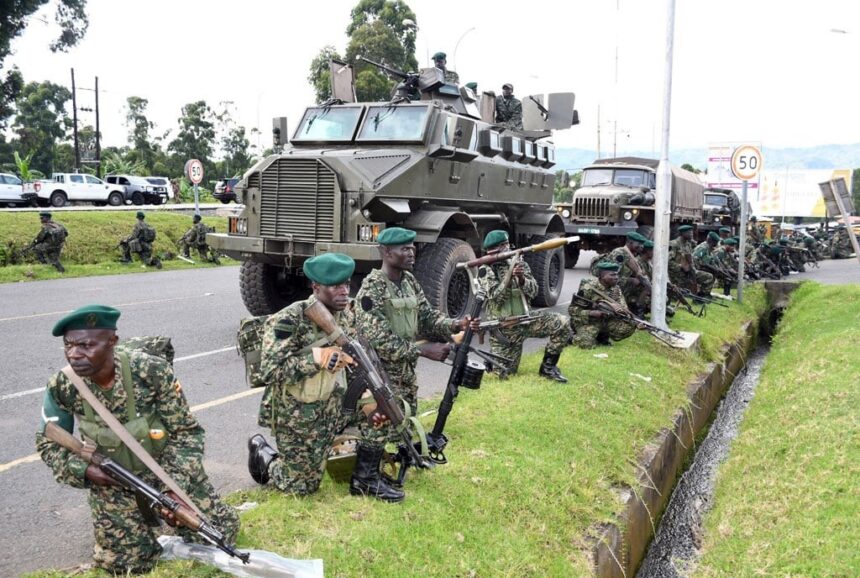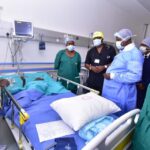The Uganda People’s Defence Forces (UPDF) has its roots in the National Resistance Army (NRA), a rebel group that fought against the government of President Milton Obote and later President Tito Okello in the 1980s.
The NRA was formed in 1981 by Yoweri Museveni, who later became the President of Uganda. The group’s primary objective was to overthrow the Obote government, which was very corrupt and oppressive.
The NRA waged a guerrilla war against the government, using tactics such as ambushes, sabotage, and raids. They operated primarily in the Luwero Triangle, a region in central Uganda.
The NRA achieved several military victories, including the capture of the towns of Luwero and Nakaseke. These victories helped to boost the morale of the rebels and gain support from the local population.
In January 1986, the NRA captured Kampala, the capital city of Uganda. This marked the beginning of a new era in Ugandan politics.
In 1995, the NRA was transformed into the Uganda People’s Defence Forces (UPDF). According to the late Brig. Noble Mayombo, during the constituency assembly in 1994, he stated that Uganda represents the name of the country, and people’s Defence is your mission, and forces were to cater to its expansion. This was established as a professional, non-partisan military force, responsible for defending Uganda’s sovereignty and territorial integrity. The UPDF integrated other military forces, including the former government army and rebel groups, into its ranks. This helped to promote national unity and reconciliation.
The UPDF has undergone significant modernization efforts, including the acquisition of new equipment, training, and infrastructure development.
This army has emphasized professionalization, with a focus on discipline, loyalty, and respect for human rights. The UPDF has participated in regional and international peacekeeping missions, including in Somalia, the Democratic Republic of Congo, and South Sudan.
Today, the Uganda People’s Defence Forces is a modern, professional military force, committed to defending Uganda’s sovereignty and contributing to regional stability and security.
The armed forces of Uganda were established to preserve and defend the country’s sovereignty and territorial integrity. It is mandated by the Constitution of the Republic of Uganda, 1995, and is responsible for protecting Uganda’s interests at home and abroad while providing a safe and secure environment for its citizens.
The UPDF is a non-partisan force, national in character, patriotic, professional, disciplined, productive, and subordinate to civilian authority. Its mission is to defend and protect the sovereignty and territorial integrity of Uganda, as well as the Constitution, which encapsulates the people’s sovereignty through popular will. The UPDF is led by President Yoweri Museveni, who serves as the Commander-in-Chief, and Gen. Muhoozi Kainerugaba, the Chief of Defence Forces. The force has undergone significant transformation over the years, including its expansion and modernization, to effectively address the country’s security challenges.
In addition to its national security roles, the UPDF has been involved in regional peacekeeping missions, including in Somalia, the Democratic Republic of Congo, and South Sudan. The force has also participated in international training exercises and partnerships, such as the African Contingency Operations Training and Assistance Programme with the United States.
The UPDF has contributed to regional stability by participating in peacekeeping missions and supporting the African Union’s efforts to maintain peace and security in the region. This stability has also contributed to a conducive environment for economic growth and investment, medical care, food aid and shelter. This assistance has helped to alleviate suffering and create a stable environment for economic growth.
The Uganda People’s Defence Forces has participated in capacity-building initiatives, such as training and mentoring programs, to enhance the capabilities of other East African countries’ security forces. This has helped strengthen regional security and stability.
This Ugandan army, which is now a regional force, has supported organizations such as the African Union Mission in Somalia (AMISOM) and the United Nations Mission in South Sudan (UNMISS). These organizations have worked to promote peace, stability, and economic growth in the region.
UPDF’s participation in regional security initiatives has helped to strengthen cooperation between East African countries, promoting a sense of unity and collective responsibility for regional security.
The UPDF’s contributions to regional security and development have been acknowledged by various leaders and organizations. For example, the President of Uganda, Yoweri Museveni, has been praised for his leadership in promoting regional stability and cooperation.
Overall, the UPDF’s efforts have made a significant impact on regional stability and development, earning them appreciation and recognition from the region.






